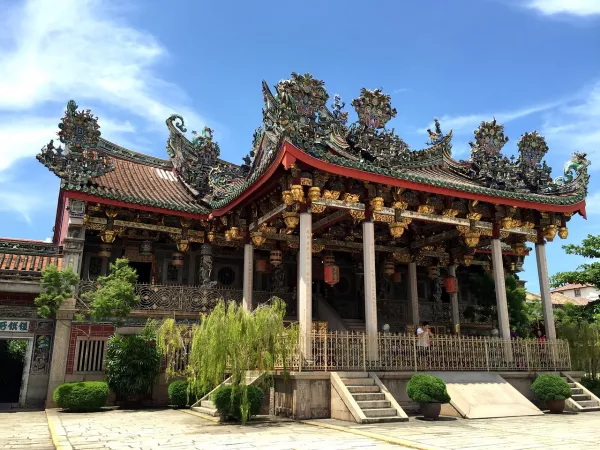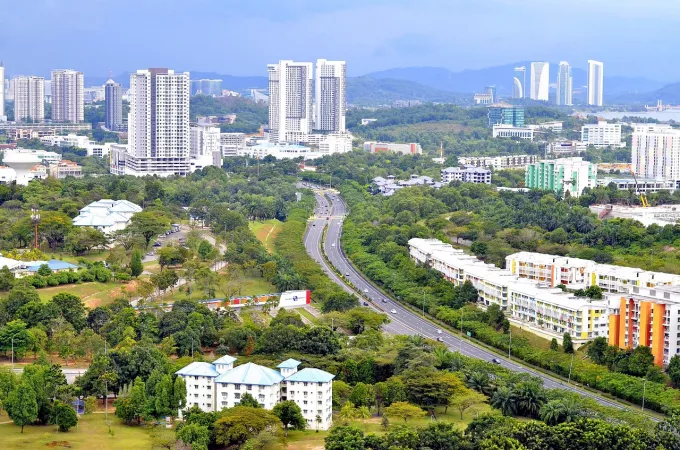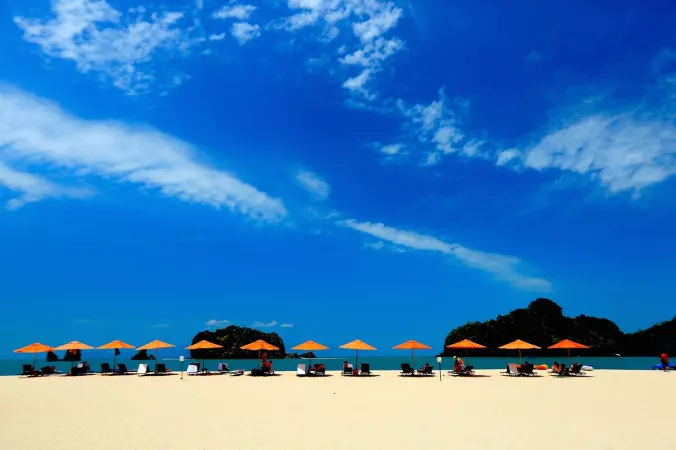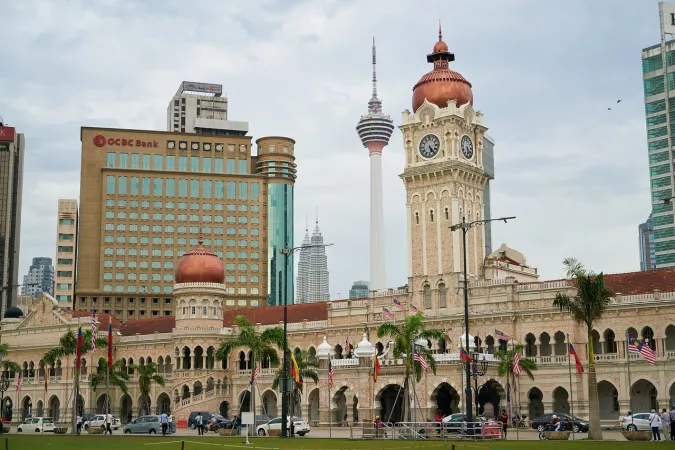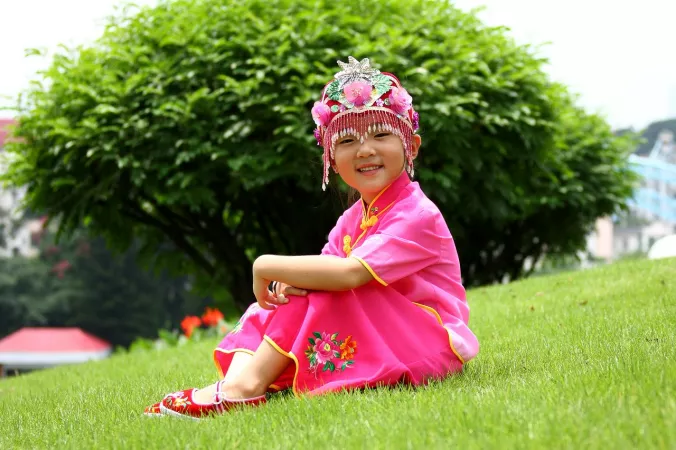
Sibu Travel Guide
Sibu, located in Sarawak, Malaysia, is a vibrant town with a rich historical and cultural significance. Known for its bustling markets, traditional longhouses, and the Rajang River, Sibu is a melting pot of diverse cultures. The town's economy thrives on agriculture, timber, and shipping industries, making it a significant commercial hub in the region.Top Attractions in Sibu
- Sibu Central Market
- Tua Pek Kong Temple
- Bukit Aup Jubilee Park
- Rajang Esplanade
- Sibu Heritage Centre
Sibu is Famous for
Sibu is famous for its vibrant Central Market, which offers a wide array of local produce, handicrafts, and traditional foods.Top Attractions in Sibu
- Explore the bustling Sibu Central Market
- Visit the iconic Tua Pek Kong Temple
- Enjoy a leisurely stroll along the Rajang Esplanade
- Experience the beauty of nature at Bukit Aup Jubilee Park
- Immerse yourself in the local history at Sibu Heritage Centre
What's Great about Travelling to Sibu?
- Rich Cultural Experience: Perfect for culture enthusiasts
- Scenic River Cruises: Ideal for nature lovers
- Delicious Local Cuisine: A paradise for foodies
What's Not So Great about Travelling to Sibu?
- Limited Public Transportation: Challenging for solo travelers
- Humid Climate: Not suitable for those sensitive to heat
- Language Barrier: Communication may be a bit challenging
Travel Tips for Sibu
- Visa Requirements: Check visa regulations before traveling
- Transportation: Renting a car is recommended for convenience
- Safety: Be cautious of your belongings in crowded areas
Important Sibu trip information
- Ideal Duration: 3-4 days to explore the town and nearby attractions
- Best Time to Visit: March to October for pleasant weather
- Nearby Airports and Railway Stations: Sibu Airport and Sibu Railway Station for easy access
FAQ's on Sibu
Q1: What is the best time to visit Sibu?
is best visited during the dry season, which is from April to September. The weather during these months is pleasant, with lower chances of rain. Additionally, the Borneo Cultural Festival in July is a popular event that showcases the rich cultural heritage of the region, making it a great time to experience local traditions.
Q2: Do I need a visa to travel to Sibu?
Tourists visiting usually do not require a visa for stays of up to 90 days. However, it's essential to check visa requirements based on your nationality before traveling. Some countries may have different visa regulations, so it's advisable to verify the specific entry requirements beforehand.
Q3: What are the must-visit attractions in Sibu?
When in , don't miss exploring the Sibu Central Market, visiting the Tua Pek Kong Temple, and taking a boat ride along the Rajang River. The Sibu Heritage Centre and Bukit Aup Jubilee Park are also popular spots that offer insight into the local culture and natural beauty.
Q4: Is Sibu a safe place to travel?
Overall, is a safe destination for travelers. However, like any other place, it's advisable to be cautious of your surroundings, especially in crowded areas or at night. Avoiding secluded areas and taking necessary precautions with your belongings can help ensure a safe and enjoyable trip.
Q5: What is the local currency in Sibu and can I use credit cards?
The local currency in is the Malaysian Ringgit (MYR). While credit cards are accepted at larger establishments like hotels and shopping malls, it's recommended to carry cash for smaller vendors and local markets. ATMs are widely available in the city for convenient currency exchange.
Q6: What is the local cuisine like in Sibu?
offers a diverse culinary experience with influences from Chinese, Malay, and indigenous Dayak cuisines. Must-try dishes include the famous Sarawak Laksa, umai (a traditional raw fish salad), and kampua mee (noodles tossed in flavorful sauce). Vegetarian options are also available for those with dietary preferences.
Q7: What transportation options are available in Sibu?
In , travelers can utilize public buses, taxis, and ride-hailing services for local transport. Renting a car or motorbike is another convenient way to explore the city and its surrounding areas. Additionally, boats are a common mode of transportation for river cruises and visits to nearby villages.
Q8: Are there any cultural norms or etiquette I should be aware of when visiting Sibu?
Respecting local customs and traditions is important when visiting . It's customary to remove your shoes before entering someone's home, show respect to elders, and avoid pointing with your fingers. Modest attire is appreciated when visiting religious sites, and asking for permission before taking photos of locals is considered polite.
Q9: I am a travel agent. How can I buy travel leads of Sibu?
Register yourself as a travel agent at agents.tripclap.com and then you can buy travel leads to Sibu once your account is approved. For more details contact our support team at +91-8069186564 or support@tripclap.com

